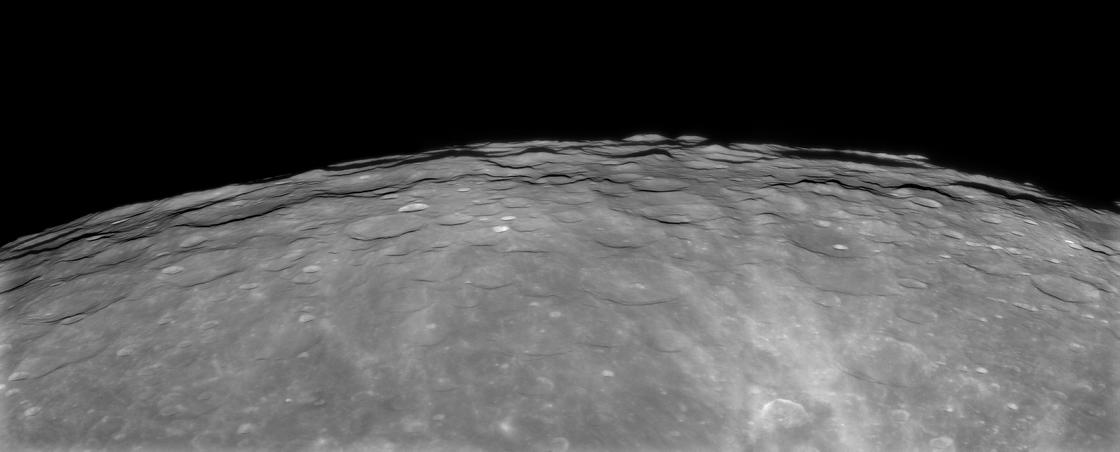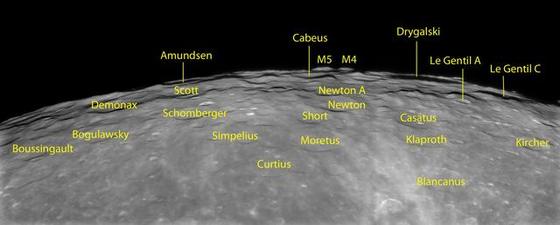October 12, 2012
Always Something To See

image by Valère Leroy, France [south is up]
Too often we hear it said that the period around the full Moon is of little interest to the observer or the imager. This is of course wrong. In these conditions, the light erases much of the vertical topography but it also emphasizes the differences in albedo, thus underlining bright rays and dark pyroclastics. But the Full Moon also provides a good occasion to observe the polar regions, which still benefit from grazing lightning conditions. Valère took this image of the South Pole area on the morning of Sep. 30th, taking advantage of a -4°43' libration in latitude. This area has not been featured so frequently on LPOD. The last I was able to find were dated Feb 13, 2009, Dec 7, 2010 and 22 novembre 2011. A classical - but not so easy, because the classical maps, such the Rükl atlas the Virtual Moon Atlas are of little help here - exercise is to try to identify craters. Here, the simplest approach is to start from Moretus, which stands at the center, with its bright central peak. Just behind is Short and, slightly on the right, Newton and Newton A. Further behind, almost on the limb is Cabeus and, emerging from the limb, two mountain peaks known as M4 et M5. At a roughly equal distance, on each side of these peaks, the darkened arena of Amundsen (on the left) and Drygalski (on the right) can be guessed.
Jocelyn Sérot, Claude Navarro, Gérard Coute
Note from Chuck: Thanks to Jocelyn, Claude and Gérard, who everyday translate LPOD into French and display it at l'image lunaire du jour. Now they are receiving great images and have created a LIUJ which they have translated into English to share with the rest of us. You can learn more about our three French muskateers here. Merci!

Technical details
10" Cassegrain at prime focus, red filter, DMK31 camera. Six images assembled. Processing Iris.
Yesterday's LPOD: Fly Swat
Tomorrow's LPOD: Another Mare
COMMENTS?
Register, Log in, and join in the comments.



